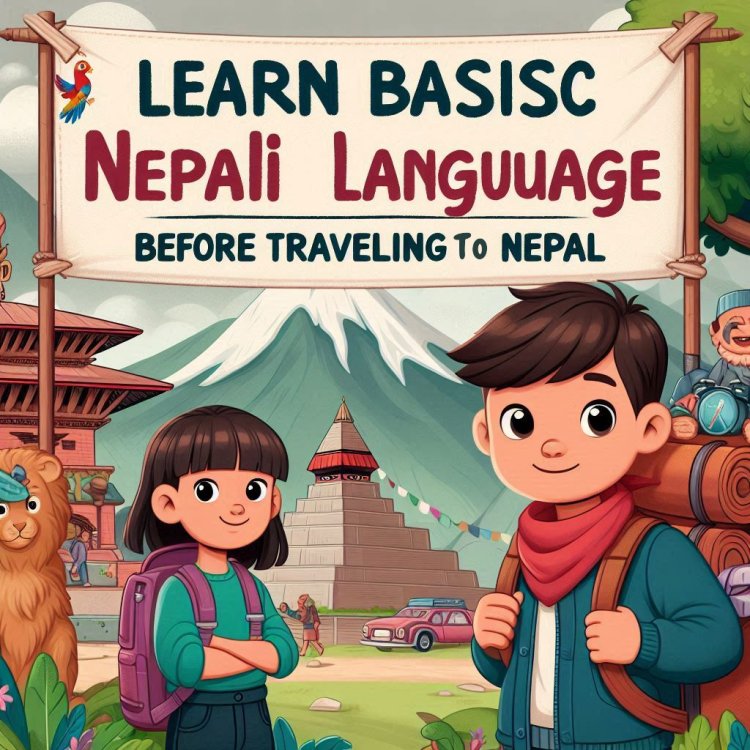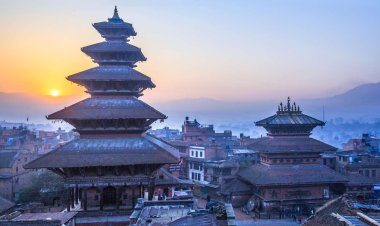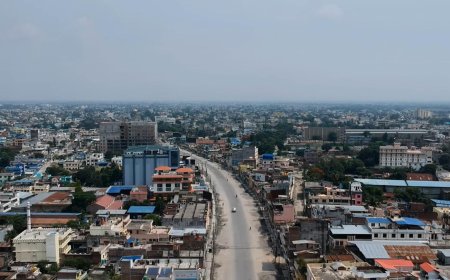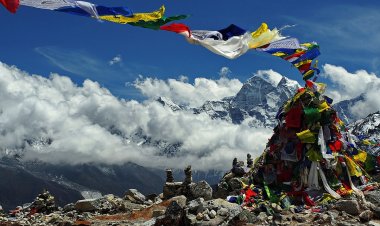Learn Basic Nepali Words and Language Before Traveling to Nepal
Learn essential Nepali words and phrases to enhance your travel experience, connect with locals, and navigate Nepal with ease.

Traveling to Nepal is an incredible adventure filled with stunning landscapes, rich culture, and warm, welcoming people. While English is widely understood in popular tourist areas, learning some basic Nepali words and phrases can greatly enhance your experience. Communicating with locals in their language can help you build connections, navigate more easily, and immerse yourself in the local culture.
In this blog, we’ll explore essential Nepali words and phrases that every traveler should know before visiting Nepal. By the end, you’ll be prepared to engage with the locals and enjoy a smoother journey through this beautiful country.
Why Learning Basic Nepali is Helpful for Travelers
Learning Nepali before traveling to Nepal has several advantages and It is also important because Translator like Google Translator or other application are pretty much immature which sounds creepy:
Better Communication: Many people in rural areas speak little to no English. Knowing basic Nepali will help you get by.
Cultural Respect: Speaking the local language shows respect for the culture, making interactions more pleasant.
Practical Uses: Whether you're asking for directions, ordering food, or bargaining in markets, basic Nepali will be very useful.
Basic Facts About the Nepali Language
Nepali, also known as Gurkhali which belongs to the Indo-Aryan language family and is written in the Devanagari script, which is also used for Hindi and Sanskrit. With over 17 million speakers worldwide, Nepali is the official language of Nepal and is spoken by the majority of its population. Learning a few words of this ancient and widely spoken language can go a long way in your travels.
Common Greetings and Phrases
Here are some simple but essential greetings you can use in Nepal:
Namaste (नमस्ते): A respectful greeting used to say "Hello" and “Hi”
Dhanyabaad (धन्यवाद): Thank you.
Tapailāi kasto cha? (तपाईलाई कस्तो छ?): How are you?
Ma jānchu aaba : I will go now.
Pachi bhetaummla : See you later.
These phrases will help you make a great first impression with locals.
Basic Polite Phrases for Daily Interactions
Using polite phrases can help you navigate daily interactions respectfully. Here are some of the basics:
Sanchai hunuhunchha? (सन्चै हुनुहुन्छ?): Are you fine?
Hajur (हजुर): A versatile word for "Yes" or to acknowledge someone respectfully when they call you.
Maaph garnuhos (माफ गर्नुहोस्): Sorry. But you can directly say “sorry” many will understand.
Kripaya (कृपया): Please.
These will come in handy when interacting with anyone, from shopkeepers to hotel staff.
Numbers in Nepali
Learning numbers is key when negotiating prices, buying things, or even catching public transport. Here’s how to count from 1 to 10 in Nepali:
Ek (१) = 1 ( One )
Dui (२) = 2 ( Two )
Tin (३) = 3 ( Three )
Char (४) = 4 ( Four )
Pā̃ch (५) = 5 ( Five )
Chha (६) = 6 ( Six )
Sāt (७) = 7 ( Seven )
Āṭh (८) = 8 ( Eight )
Nau (९) = 9 ( Nine )
Das (१०) = 10 ( Ten )
Some of the words that will help you to purchase
To ask "How much?" in Nepali, you can say Kati ho? Or Kati parcha ? (कति हो?).
To ask "How much should I pay?" in Nepali, you can say How much should I pay? (मैले कति तिर्नुपर्छ).
Transportation-Related Vocabulary
Navigating transportation is crucial when traveling around Nepal. Here are some key words and phrases:
Bus (बस) : Bus.
Taxi (ट्याक्सी) : Taxi.
Yahã rokhnus (यहाँ रोक्नुस्) : Stop here.
Yahã rokhnus saknu hunxa (यहाँ रोक्नुस् सक्नुहुन्छ) : You Can Stop here.
Yō bāṭō kaha jāncha? (यो कुन बाटो जान्छ? ) : Which way does it go?
These will help you when getting around by bus, taxi, or other local transport options.
Ordering Food and Drinks in Nepali
Nepali cuisine is diverse, and knowing how to order food can make dining experiences more enjoyable. Here are a few important phrases:
Pani (पानी): Water.
Bhat (भात): Rice.
Momo (मोमो): Dumplings, a popular dish in Nepal.
chicken meat (कुखुराको मासु): Kukhurākō māsu
To politely order, you can say, malai ek plate momo dinuhos ( एक प्लेट मोमो दिनुहोस्): Please, give me one plate of momos.
Asking for Directions
When exploring new places, you may need to ask for directions. Here are some useful phrases:
Yahã bata kun side jannay ho? : Which direction from here?
Bato kata ho? (बाटो कता हो?): Where is the road?
These phrases will help you navigate unfamiliar areas with ease.
Shopping and Bargaining Phrases
Shopping and bargaining in local markets is common in Nepal. Here’s how to engage in basic transactions:
Kati parchha? (कति पर्छ?): How much does it cost?
Tara mahango chha (तर महँगो छ): But it’s expensive.
Sasto garnus na (सस्तो गर्नुहोस् न): Please make it cheaper.
These phrases can be useful when shopping for souvenirs or local goods.
Hotel-Related Vocabulary
When checking into hotels, knowing these words can help:
Hotel kahã chha? (होटेल कहाँ छ?): Where is the hotel?
Understanding these phrases will ensure smoother communication when booking accommodations.
Emergency and Health-Related Words
In case of emergencies, knowing a few key words can be critical:
Help garnuhos or Sahayata garnuhos (सहायता गर्नुहोस्) : Help!
Rokhnus (रोक्नुस्): Stop!
Aspatal (अस्पताल): Hospital.
Doktor (डाक्टर): Doctor.
Birami (बिरामी): Sick.
Malai sancho chaina ( मलाई सन्च छैन ): I am not feeling well.
Ma Birami chu ( म बिरामी छु ): I am Sick.
These could be life-saving if you need assistance during your trip.
Cultural Etiquette and Respectful Communication
Respecting cultural norms is essential when communicating in Nepali:
Use the respectful form of "You": In Nepali, the formal "you" is Tapāī (तपाई), used to show respect, especially with elders or strangers.
The Namaste gesture: Always greet people with palms pressed together in a prayer-like gesture when saying Namaste.
Speak humbly and avoid being overly direct: Nepali culture values humility in speech.
By using these cultural nuances, you’ll come across as respectful and considerate.
Conclusion
Learning basic Nepali before traveling to Nepal can greatly enhance your travel experience. It will help you communicate better with locals, show respect for the culture, and navigate the country with ease. Start with simple greetings and gradually learn more as you practice. Enjoy your trip to Nepal, and don’t hesitate to try out your new language skills!
FAQs:
Do people in Nepal understand English?
Yes, many people in tourist areas speak English, but in rural areas, basic Nepali will be very helpful.
How difficult is it to learn Nepali for English speakers?
Nepali can be challenging due to its different script and grammar, but learning basic phrases is manageable and rewarding.
What is the most common greeting in Nepal?
The most common greeting is Namaste, often accompanied by a slight bow and the palms pressed together.
Can I use Hindi to communicate in Nepal?
While Hindi is understood by many, Nepali is the official language, and using it will be appreciated.
How can I practice Nepali before traveling?
You can use language apps, watch YouTube tutorials, or take a beginner’s course to get familiar with basic phrases.
What's Your Reaction?








































































































